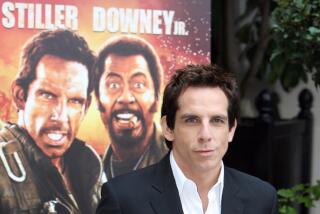The Grammar and Usage Rules We Have Trouble With
- Share via
As usual, when I write about grammar and usage, I suffer a backlash of criticism.
In writing the other day about the misuse of I when me would be correct, I recalled the well-worn anecdote about William Lyon Phelps, the celebrated Yale professor. According to the story, Professor Phelps knocked at a dormitory door and was asked who was there. He answered, “It’s me, Dean Phelps.” And they refused to let him in because they knew Phelps would have said, “It is I.”
Unfortunately, one of my readers was Robert P. Hastings, a Yale man who says he knew Phelps well enough to call him Billy, though obviously not to his face.
Mr. Hastings writes: “If my memory serves me correctly (and it may not since this year I attended my 60th class reunion), Billy Phelps never held the title of dean, at least during my time in New Haven.”
Well, then, it’s no wonder the students turned him away, knowing he wasn’t a dean.
Hastings adds: “He was one of the most popular, beloved professors and I was privileged to sit at his feet in his class. I am certain that Professor Phelps would have responded ‘I’ and not ‘me.’ Professor Phelps would have chewed out anyone in his class, including me, who made that mistake.”
Too bad the sportscaster who said, “There’s nobody between he and the goal line” wasn’t in Professor Phelps’ class.
Hastings also casts doubt on another cherished anecdote. It’s the one in which Winston Churchill finds a note on one of his manuscripts correcting him for ending a sentence with a preposition, the alleged rule against this being cherished by some purists.
Churchill is said to have added his own note: “This is the sort of errant nonsense up with which I will not put.”
Hastings is a Churchill scholar who has a collection of several thousand Churchill items. “My hero would never think of ending a sentence with a preposition,” he says, “although I have a hazy memory that the great man did end a sentence with a preposition in one of his many books.”
Evidently, he did it in the manuscript referred to in my anecdote. Until proven innocent, I will hold him guilty.
Having revived that hoary story, I am reminded shamelessly of another one in which a small boy says to a nanny who has brought a book upstairs: “What did you bring that book I don’t want to be read to out of up for?” That’s ending a sentence with five prepositions.
By the way, SPELL/Binder, a publication of the Society for the Preservation of English Language and Literature, notes that ending a sentence with a preposition is idiomatic English and good writers have been doing it since Shakespeare wrote “We are such stuff as dreams are made on.”
In making my point, I cited “Let a little sunshine in” as a sentence that would not work without the preposition at the end. David A. Grey says he once heard his grandfather use a more perfect example (apologizing for using an intensifier to modify perfect ). It was “Yesterday I was operated on.”
He notes that “Let a little sunshine in” could be expressed as “Let in a little sunshine.” He admits that it would be awkward. Awkward indeed. Try singing it.
I agree that “Yesterday I was operated on” cannot be expressed otherwise without adding words: “Yesterday doctors operated on me.”
Chuck Thompson makes a persuasive point against my suggestion that the introductory phrase “As far as” must be completed by the phrase “is concerned.” He argues, “That approach only compounds the error. I understand concern to be a uniquely human emotion. How can an inanimate object, such as a divisional (baseball) race, be concerned about anything?
“I wince,” Thompson says, “every evening as I listen to a local TV weatherman say, ‘As far as the weather is concerned.’ Please don’t give them your approval.”
Good point. However, I remind Thomson that I suggested using “as for” instead of “as far as,” thus avoiding the dubious concerned.
Arlene Smith tells a story suggesting that not everyone has given up on the distinction between lie and lay . She recalls that a famous Hollywood director, who had passed the century mark, was playing golf with his younger wife one morning when he collapsed on a fairway. His wife cried, “Don’t move! Just lay there and I’ll go get help!”
Whereupon, she says, the gentleman “touched her leg, raised his head an inch or two and wanly whispered, “Lie there.”
Let that be an example. We should never give up.
More to Read
Sign up for our Book Club newsletter
Get the latest news, events and more from the Los Angeles Times Book Club, and help us get L.A. reading and talking.
You may occasionally receive promotional content from the Los Angeles Times.










